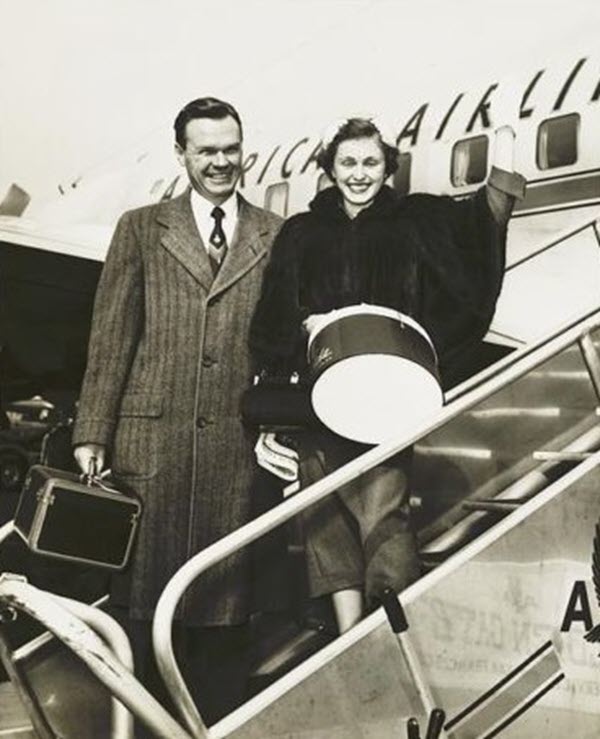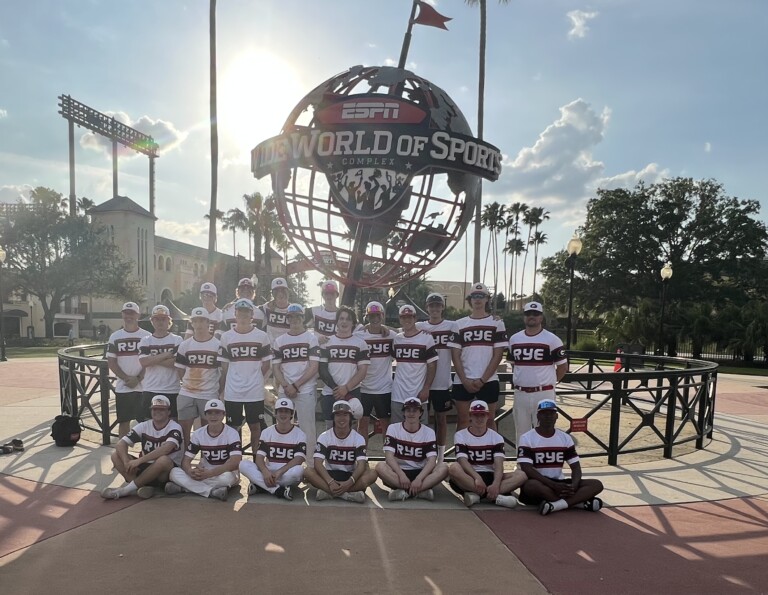RyeGPT People of Note: NY Giants Owner & Sports Icon Wellington Mara

RyeGPT People of Note is a series highlighting individuals who have a connection to the City of Rye. In the series we ask OpenAI’s ChatGPT to prepare a biography and explain the individual’s connection to Rye.
We welcome your feedback on this series – the use of artificial intelligence, the accuracy and usefulness of each article and your assistance in understanding other pertinent insights related to the person’s connection to Rye.
You can add comments at the bottom of each article or you can send feedback via Tips & Letters.
Today, meet New York Giants owner and sports icon Wellington Mara.
Wellington Timothy Mara (August 14, 1916 – October 25, 2005) was an iconic figure in American sports, known for his leadership and long-standing association with the National Football League (NFL) as the co-owner of the New York Giants. His life story is deeply intertwined with the history of professional football, as well as with the community of Rye, New York.
Early Life and Entry into Football
Wellington Mara was born in Rochester, New York, to Tim Mara, the original owner of the New York Giants, and Elizabeth Mara. He was named after the Duke of Wellington, reflecting his family’s Irish heritage. In 1925, his father purchased the New York Giants franchise for $500, and by the time Wellington was a teenager, he was already involved in the team’s operations. He officially joined the organization as a ball boy at the age of 9, beginning a lifelong association with the team.
Mara attended Loyola School in Manhattan and went on to study at Fordham University, where he earned his degree in 1937. After completing college, he took on a more active role in managing the Giants, serving as the team’s secretary, treasurer, and eventually vice president.
Leadership and Contributions to the NFL
In 1930, Tim Mara split ownership of the Giants between his sons, Wellington and Jack, ensuring that the team remained in the family. Wellington emerged as a driving force behind the franchise’s operations, focusing on player recruitment, management, and strategy. His emphasis on building a competitive team and fostering the NFL’s growth helped shape the league’s modern era.
One of his most notable contributions to the NFL was his role in revenue sharing. Wellington championed the idea that television revenue should be distributed equally among all teams, regardless of market size. This model promoted parity in the league and contributed to its long-term success.
Under Wellington’s leadership, the Giants became one of the most successful franchises in NFL history, winning numerous championships, including four Super Bowl titles during his tenure. He remained deeply involved with the team until his death in 2005.
Connection to Rye, New York
Wellington Mara was a long-time resident of Rye, New York, where he lived with his wife, Ann Mara, and their 11 children. The Mara family became integral members of the Rye community, known for their philanthropy and active participation in local events.
The family’s home in Rye served as a retreat from the intense demands of professional football, but Wellington remained accessible to both fans and neighbors. He was a devout Catholic and a parishioner at the Church of the Resurrection in Rye, where he was involved in various charitable activities. The Maras were also known for their support of local schools, sports programs, and community initiatives.
Rye became a symbol of Mara’s grounded nature, balancing his high-profile career with a humble and family-oriented lifestyle. Despite his success in the NFL, he was known for his modesty, frequently walking around the town and engaging in conversations with locals.
Legacy
Wellington Mara passed away on October 25, 2005, after a long battle with cancer. He was celebrated not only as an influential figure in the NFL but also as a beloved member of his community. His impact on professional football remains a cornerstone of the sport’s history, and his emphasis on fairness and sportsmanship continues to inspire generations of players and executives.







Do not forget Wellington Mara’s service in the U.S. Navy during World War II. He served aboard the U.S.S Randolph (CV-15) an aircraft carrier in the Pacific. While serving on her, the Randolph was struck by a Kamikaze, killing 27 crewmembers and inflicting severe damage. She was repaired, and participated in the invasion of Okinawa, and conducted raids on mainland Japan. She was under continuous combat until the end of the war. Mr. Mara, like my dad and father- in-law, were true members of the greatest generation